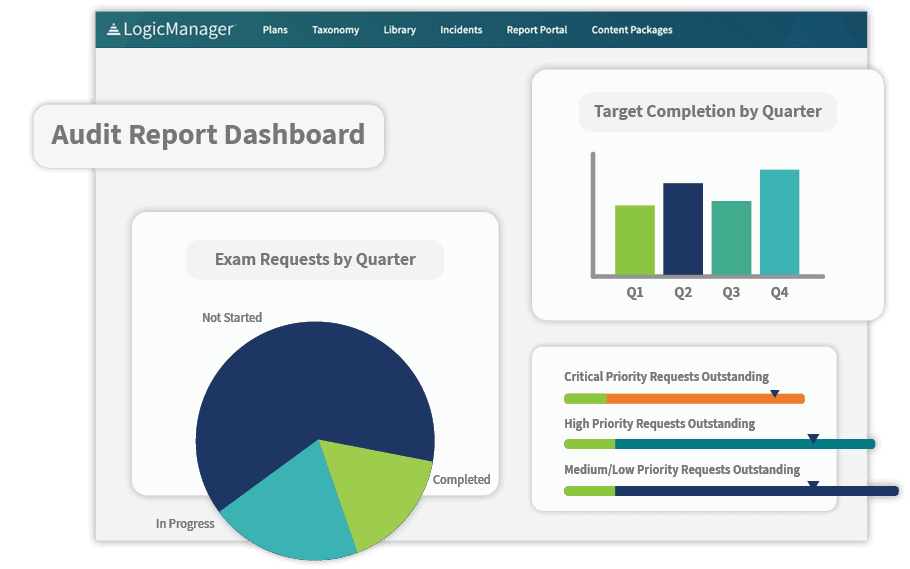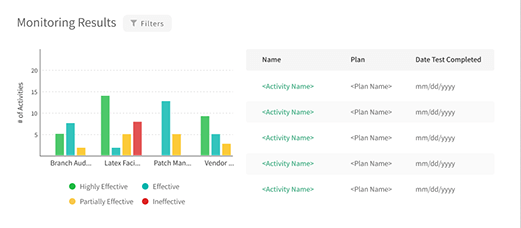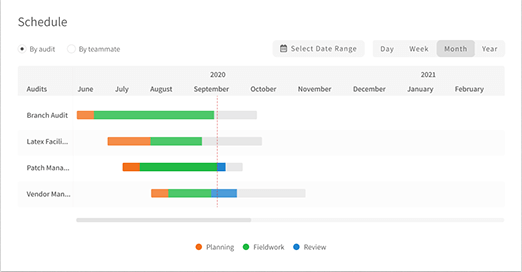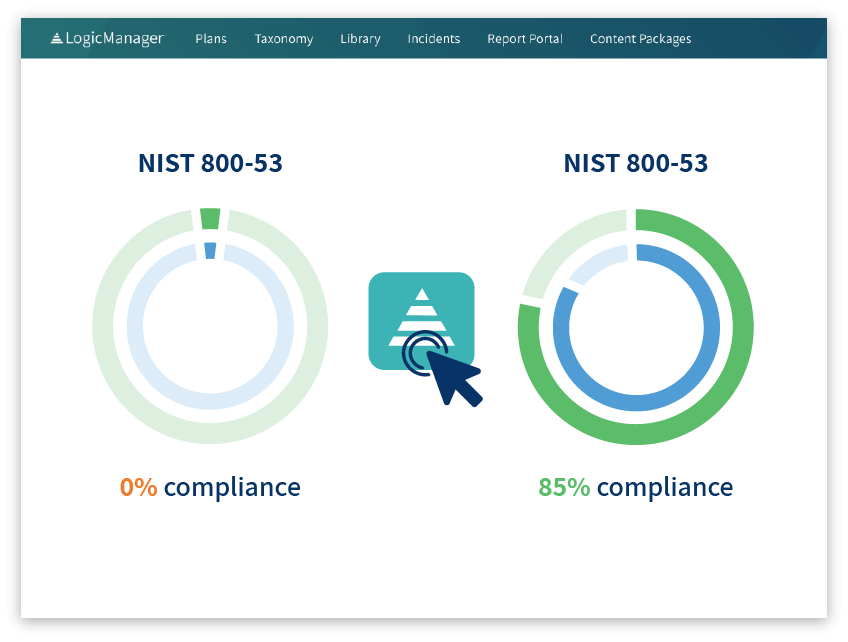IT Audit Software
Master the complexities of IT audits in today's dynamic technological landscape with LogicManager's IT Audit solution. Craft a risk-based IT audit plan with precision, executing comprehensive fieldwork and control effectiveness testing. Seamlessly pinpoint issues and findings while ensuring foolproof tracking through validation. Unleash the power of our reporting package to communicate your successes.
- Access an array of pre-built IT framework requirements including SOC 2, PCI, ISO 27001, NIST, and more.
- Stay one step ahead by identifying control gaps before they escalate, ensuring your systems remain fortified against emerging risks.
- Generate robust reports and dashboards that vividly demonstrate your alignment with any IT framework or regulation, showcasing your commitment to unwavering compliance.

Why a Risk-Based Approach to IT Audit is important:
Achieve IT Audit Success with LogicManager
Here’s what you’ll be able to leverage within LogicManager’s comprehensive IT Audit solution:
- Access virtually any IT framework requirements out of the box. Our most widely used examples include SOC 2, PCI, ISO 27001, and NIST among many others.
- Identify gaps within your controls ahead of time.
- If there are any issues or gaps, leverage automated tasks and workflows to remediate wherever needed.
- In preparing for an IT audit, use LogicManager to more efficiently align with laws like GDPR, CCPA, CMMC etc.
- Deploy automated testing to monitor the effectiveness of your controls over time so that you never fall out of compliance.
- Generate robust reports and dashboards that demonstrate your alignment with any IT framework or regulation.


What is an IT Audit?
An IT audit is an audit on anything that pertains to your organization’s information technology (IT) department. You can be audited on a number of factors, including how strong your employee passwords are, encryption protocols or user access levels. You may also be audited against a specific compliance framework, such as SOC 2, ISO 27001, NIST CSF or PCI DSS.
Having a comprehensive IT Audit program often involves creating a Plan of Action and Milestones (POAM), which helps you define the scope of your audits ahead of time. This ensures that ultimately, all IT-related audits are running smoothly and you’re prepared for them on time. It also helps you identify potential issues early on so you can resolve them and keep your organization protected from IT threats.
IT Audit Risks
Whether or not you fail an audit, wasting time completing manual work to prepare for an audit costs money. Failing to outline the scope of an audit ultimately leads to wasting money, and it’s a slippery slope; you’ll inevitably miss key information and need to dedicate more time and resources to triaging issues rather than preventing them in the first place through a risk-based approach.
Request a DemoLearn How LogicManager’s IT Audit Software Can Transform Your Risk Management Program
Speak with one of our risk specialists today and discover how you can empower your organization to uphold their reputation, anticipate what’s ahead, and improve business performance through strong governance.



